Hinewehi Mohi
Hinewehi Mohi (Ngāti Kahungunu, Ngāi Tūhoe) has been an integral part of New Zealand’s music industry since the 1990s. Well known for her heroism in performing the New Zealand national anthem in te reo Māori in 1999, Mohi was appointed Dame Companion of the New Zealand Order of Merit in 2021 for her services to Māori, music and television in the Queen’s Birthday Honours List. In 2024 she was inducted into the NZ Music Hall of Fame.
Mohi’s musical and vocal talent was first seen and heard on her 1992 debut single ‘Kia U’, on Tangata Records. The waiata was significant for its time, as it is one of the earliest contemporary popular waiata written all in te reo Māori, and it is kaupapa driven, with lyrics that articulate the mistreatment of Māori by tauiwi (foreigner, European) and speak of the need for Māori to stand up and fight. The lyrics pose the question, “if the wairua is not well, then how can we as Māori people be well?” It blended together popular music forms in a style that appeals to a mainstream audience.
Hinewehi Mohi - Kia U (1992)
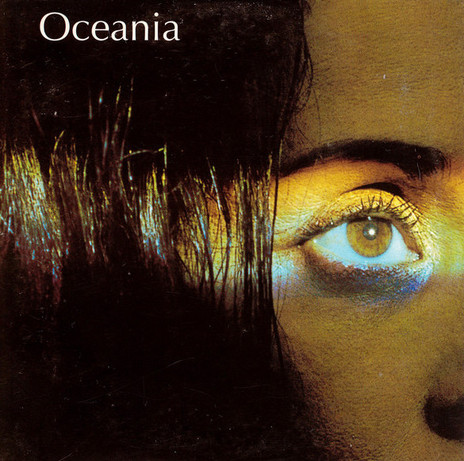
Oceania (Hinewehi Mohi, Jaz Coleman) – Kotahitanga, 1999.
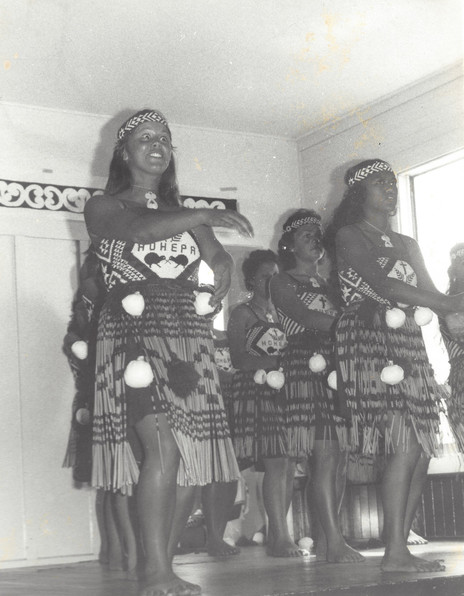
Hinewehi Mohi (front left) performing at St Joseph’s Māori Girls College, Taradale, 1981.
Photo credit:
Hinewehi Mohi collection
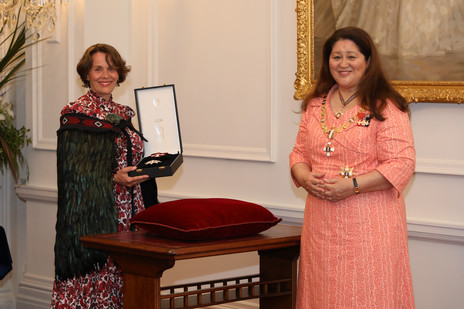
Dame Hinewehi Mohi at her investiture, with the Governor-General, Dame Cindy Kiro, Wellington, 9 December 2021.
Photo credit:
NZ Government
RNZ: Dame Hinewehi Mohi inducted into New Zealand Music Hall of Fame (2024)
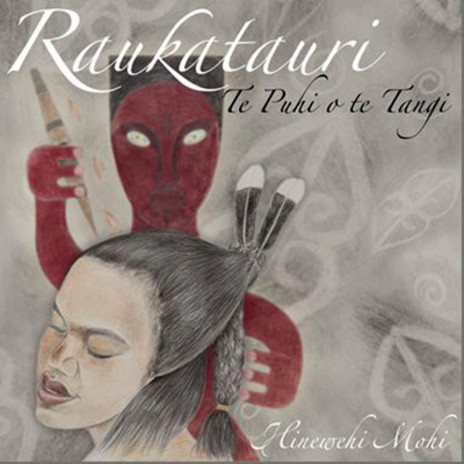
Hinewehi Mohi – Raukatauri – Te Puhi O Te Tangi. CD album, 2013.
NZ Opera's arrangement of Hineraukatauri, a waiata written by Dame Hinewehi Mohi and Jaz Coleman (2021)
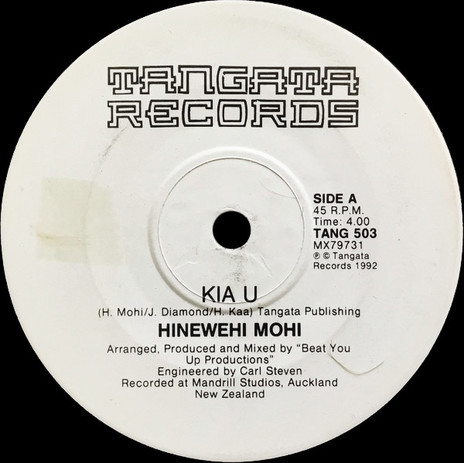
Hinewehi Mohi – Kia U (Tangata Records, 1999)
TVNZ 1 News – Hinwehi Mohi, Made in Aotearoa, Sep 1, 2019
Watch: Making Music - Hinewehi Mohi (2005)
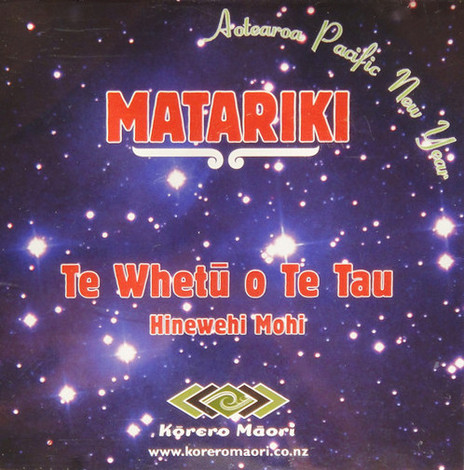
Hinewehi Mohi - Matariki Te Whetu O Te Tau CD single, 2010.
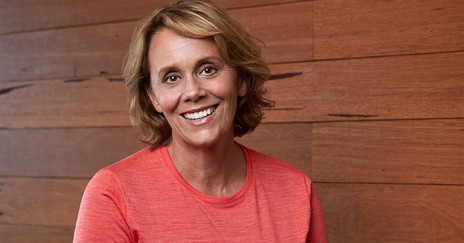
Hinewehi Mohi.
Photo credit:
Daniel Boud
Dame Hinewehi Mohi inducted into the New Zealand Music Hall of Fame at the Aotearoa Music Awards in 2024.
Hinewehi Mohi - Hineraukatauri (2013)
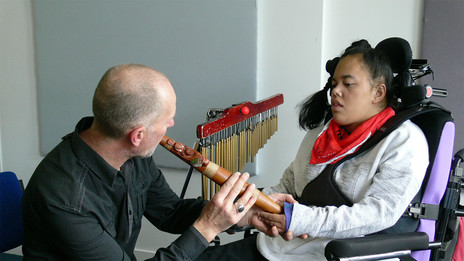
Music therapist Russell Scoones with Hineraukatauri.
Photo credit:
Hinewehi Mohi collection
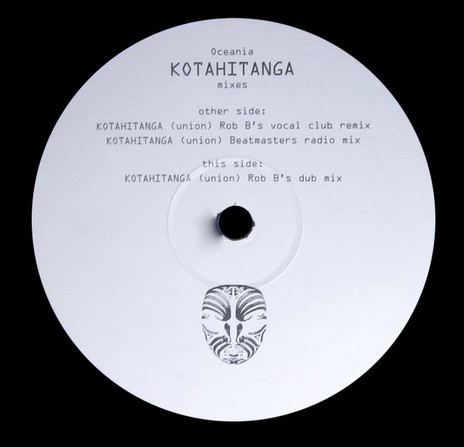
Oceania (Hinewehi Mohi, Jaz Coleman) – Kotahitanga Mixes 12" (1999)
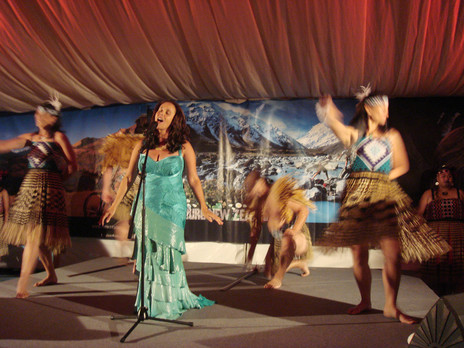
Hinewehi Mohi performing for Tourism NZ during the 2007 America’s Cup, Valencia, Spain.
Photo credit:
Hinewehi Mohi collection
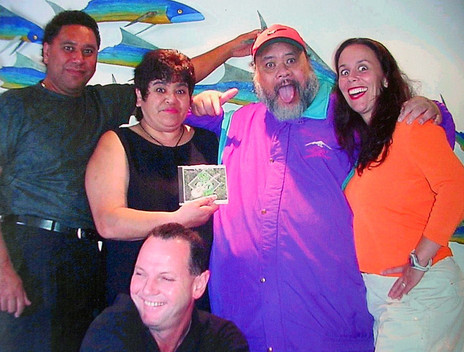
From left to right: Hirini Melbourne, Blossom Taewa, Dalvanius Maui Prime, Hinewehi Mohi, with Stuart Pearce in front, 2001. Taewa and Pearce had just produced He Koha, a video compact disc (VCD) of traditional waiata for karaoke.
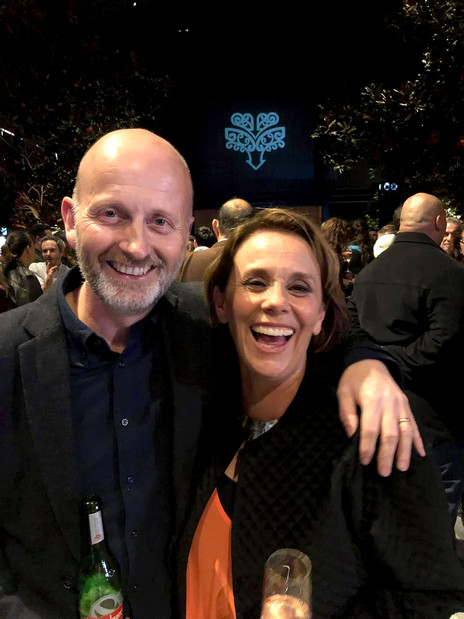
Adam Holt and Hinewehi Mohi at the Waiata Anthems launch, 2019
Photo credit:
Adam Holt Collection
RNZ: Bic Runga plays a special te reo Māori version of her song 'Sway'. 'Haere Mai Rā' was created as part of the Waiata/ Anthems album, a collection of songs by some of NZ's best loved artists, translated into Māori and project directed by Hinewehi Mohi.
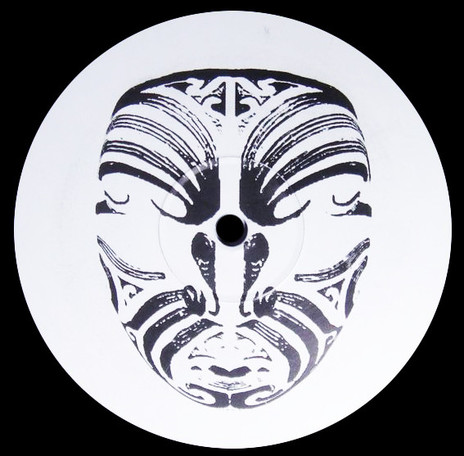
Oceania (Hinewehi Mohi, Jaz Coleman) – label art, Kotahitanga, 1999.
Dame Hinewehi Mohi | Te Whare Taonga Puoro o Aotearoa | NZ Music Hall of Fame induction (2024)
Oceania featuring Hinewehi Mohi - Kotahitanga (2000 )
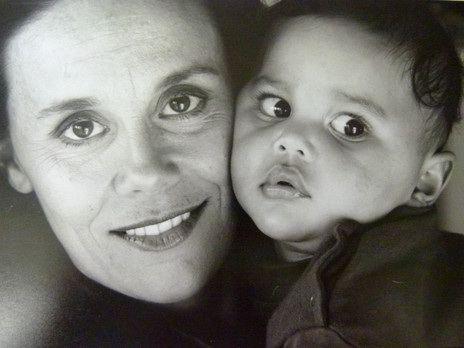
Hinewehi Mohi with Hineraukatauri.
Photo credit:
Hinewehi Mohi collection
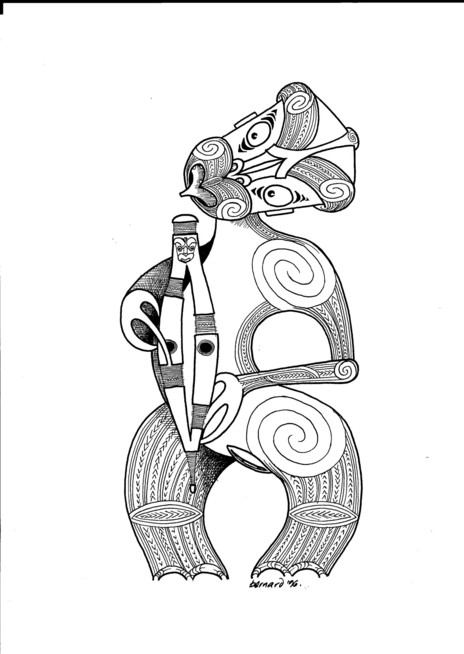
Sketch, Raukatauri, Goddess of Music, drawn by Bernard Makoare
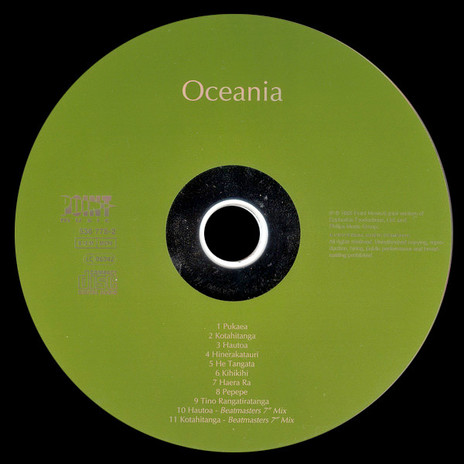
CD with album track listing, Oceania (Hinewehi Mohi, Jaz Coleman), 1999.
2005 version of The Mutton Bird's Anchor Me, released by Greenpeace to mark the 20th anniversary of the Rainbow Warrior's sinking. Features vocals from Kirsten Morelle, Anika Moa, Milan Borich, Adeaze, Hinewehi Mohi, David Atai and Donald McNulty.
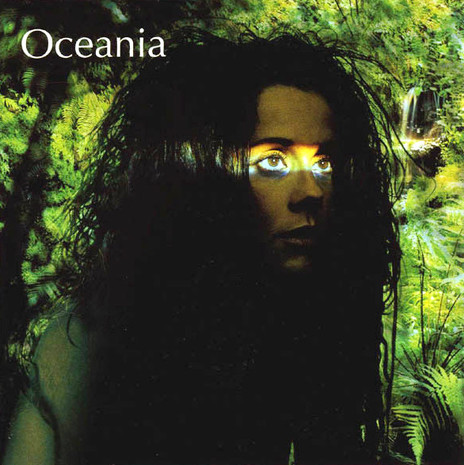
Oceania (Hinewehi Mohi, Jaz Coleman) album cover, 1999.
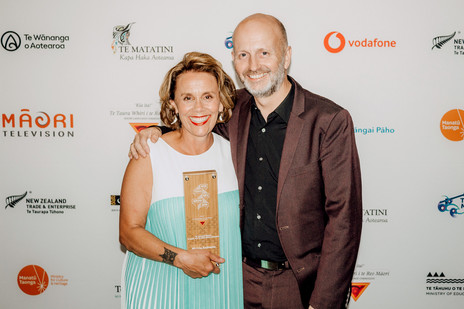
Hinewehi Mohi and Adam Holt, with the Ngā Tohu Reo Māori 2019 Award for the Waiata Anthems album, which reached No.1
Photo credit:
Adam Holt Collection
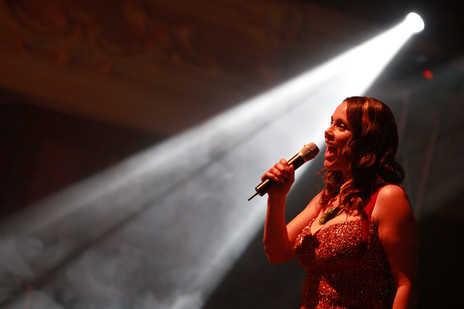
Hinewehi Mohi performing at a fundraiser for the Raukatauri Music Therapy Centres, Auckland Town Hall c 2008.
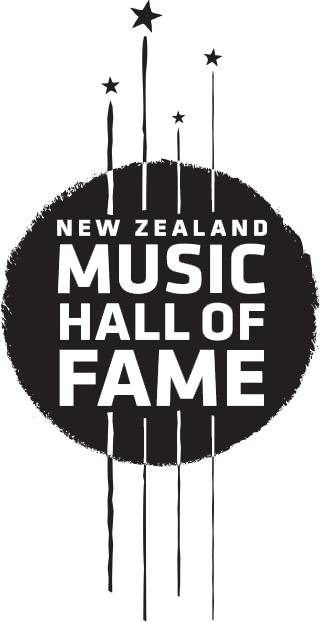
Dame Hinewehi Mohi was inducted into the New Zealand Music Hall of Fame in 2024. The Hall of Fame is an initiative of Recorded Music NZ and the Australasian Performing Right Association (APRA), whose support of AudioCulture enables the site to stream music content.
Discography







